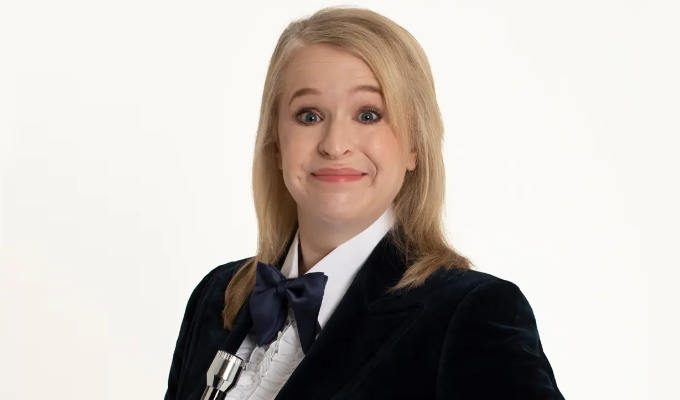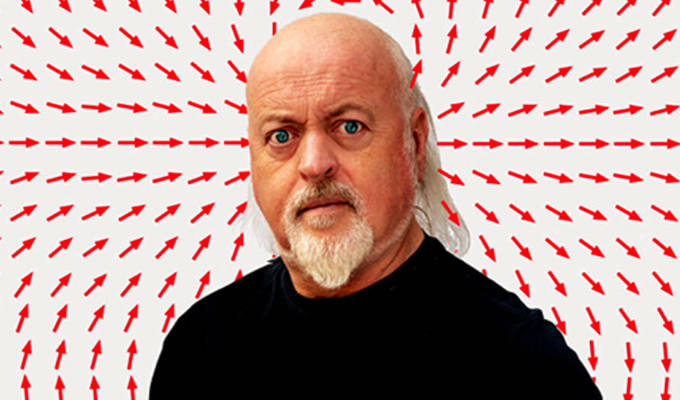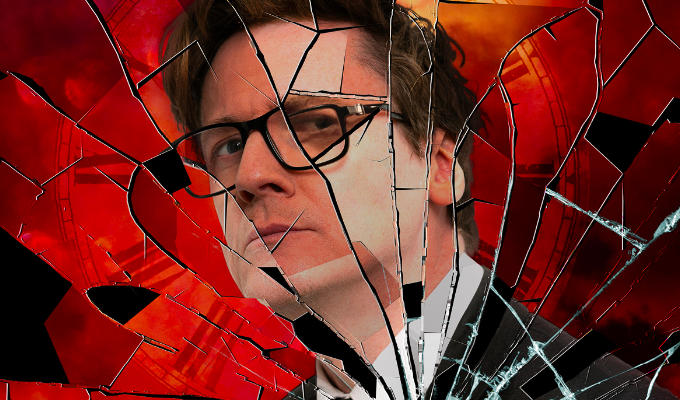Dramatic intervention
Toby Martin on the influence of theatre in comedy
If you were to take two similar middle aged people, place them in similar middle aged Wetherspoon crowds and give them each a similar middle aged line to say, you would expect them to receive similar responses.
Not so.
In fact, one of our guinea pigs would be accepted as someone who is obviously still pretty trendy, enjoys a good laugh and likes to experience cutting-edge culture close-up.
The other would be outed as a ‘square’, ‘lame’ and possibly even ‘unhip’.
Let’s examine those two similar sentences that each person had to say:
PERSON A: “I’m off out tonight to see a comedian down the local comedy club.”
PERSON B: “I’m off out tonight to see a darkly humorous one-man play at my local theatre.”
I wonder if you can work out which person got which response?
Now obviously it would be lazy and shameful of me to say that all people dismiss theatre as dull and tedious, but it is fair to say that there does seem to be something of a stigma attached to it. Stand-up comedy, however, remains where it rightfully belongs: cool, and fashionable to like.
During the last two stand up shows that I watched, Richard Herring’s Hitler Moustache and Tom Wrigglesworth’s excellent (and Chortle award-winning) Open Return Letter To Richard Branson, I was struck by how well written each show was and how carefully every word in both shows had been selected.
It would be naïve of me to believe that a stand-up’s material is as off-the-cuff as they would have you believe. As an occasional open-spotter, I have often spent too long drafting and redrafting my precious five minutes-worth of material in order to find the combination of words that would achieve the best reaction. Stewart Lee has, in the past, pointed out how often Eddie Izzard ‘umms’ and ‘aahs’ in order to achieve the illusion of spontaneity. However, Herring and Wrigglesworth’s shows were not just well-prepared… they were stunningly scripted.
It is apt that it was during Richard Herring’s show, with all of its references to Charlie Chaplin (whose own career began in music hall), that I started to realise that there are very thin, sometimes imperceptible lines between stand-up comedy and theatre. The days are gone when you would turn up at a comedy club and a semi-inebriated circuit comic would stumble on stage and blunder through 15 minutes of half-worked gags before wading into the audience. These days, routines are carefully worded and reworded, planned down to the last detail in order not to exceed their hour-long slot at the Edinburgh Fringe.
So when does comedy, which has often been associated with spontaneity, become carefully scripted theatre?
One of Britain’s best-loved playwrights, Alan Bennett, is also one of our funniest writers. However, you’d be surprised to see Alan onstage in a cardy and slippers at The Comedy Store, reminiscing about what happened when Gladys wrote a letter to the county council. However, Bennett also happened to cut his performing teeth with The Oxford Revue whilst at university: a comedy group that has provided the comedy world with the likes of Armando Iannucci, Michael Palin, Rowan Atkinson, Lee and Herring and Al Murray.
And Katy Brand.
So do we class Bennett’s monologues as a theatrical type of stand-up comedy, or a comedic type of theatre?
The problem that I have in answering that question is this: if the writing of Alan Bennett is to be considered as a collection of theatrical monologues, then how is ‘An Open Return Letter…’ any different? Granted, Tom Wrigglesworth does not spend the show in a comfy chair by a warm hearth, but other than the fact that he is standing at a microphone, directly addressing his audience, everything else remains the same. In Richard Herring’s previous show, Headmaster’s Son, the first ten minutes consisted of a descriptive monologue that set the scene for the rest of the show. It got a few chuckles but, at the end of it, received a rapturous round of applause. In this instance, the audience’s reaction was more akin to a theatre crowd than a comedy club.
Stand-up comedy itself has its roots in the music halls of the 18th and 19th centuries. Comic performers were generally silly men or gag merchants. In the 20th century, many comedians came to prominence whose acts were deeply embedded in the music hall tradition – Morecambe and Wise, Tommy Cooper and The Goons.
Comedians today, however, are looking in another place for their inspiration. This place is the theatre. Consider the spine-tingling ending to Brendon Burns’ Brendon vs. Burnsy, or his brilliant reveal at the end of So I Suppose This Is Offensive Now?; think of the critics’ morose favourite at the last Fringe, Kim Noble Must Die; reflect on the long, yet meaningful silences in any Stewart Lee show; witness Richard Herring’s extraordinary dialogue between two old people on a bonfire in Menage A Un. These are all routines that owe a debt to dramatic theatre of one kind or another.
In different ways, Brendon Burns and Stewart Lee have a great deal in common with the late Harold Pinter. Burns incorporates flashes of Pinteresque emotional violence and instability in his act, whilst Lee revels in the awkward silences that were such a hallmark of that great playwright.
If we haven’t already done so, we need to stop casting our minds back to music hall tradition when we look for the roots of today’s stand-ups. If you are a young aspiring stand-up, put away your tapes of the old classics and have a look at what is on at the theatre. Hitler Moustache may have referenced Chaplin in its content, but its style was strictly theatrical.
Let us now return to our trendy middle-aged crowds who, since we last saw them, have bundled into a taxi with Person A and are all en route to their local comedy club. Person B has been left on the pavement, forlornly waving the taxi off before turning into the cold night and making his lonely way to the theatre, his friends’ jibes still ringing in his ears.
However, Person B does not feel down or depressed, dreary or disillusioned. Instead, he feels excited. Because he knows that while his friends are watching the Rolling Stones, he is being treated to Robert Johnson.
Published: 30 Mar 2010






